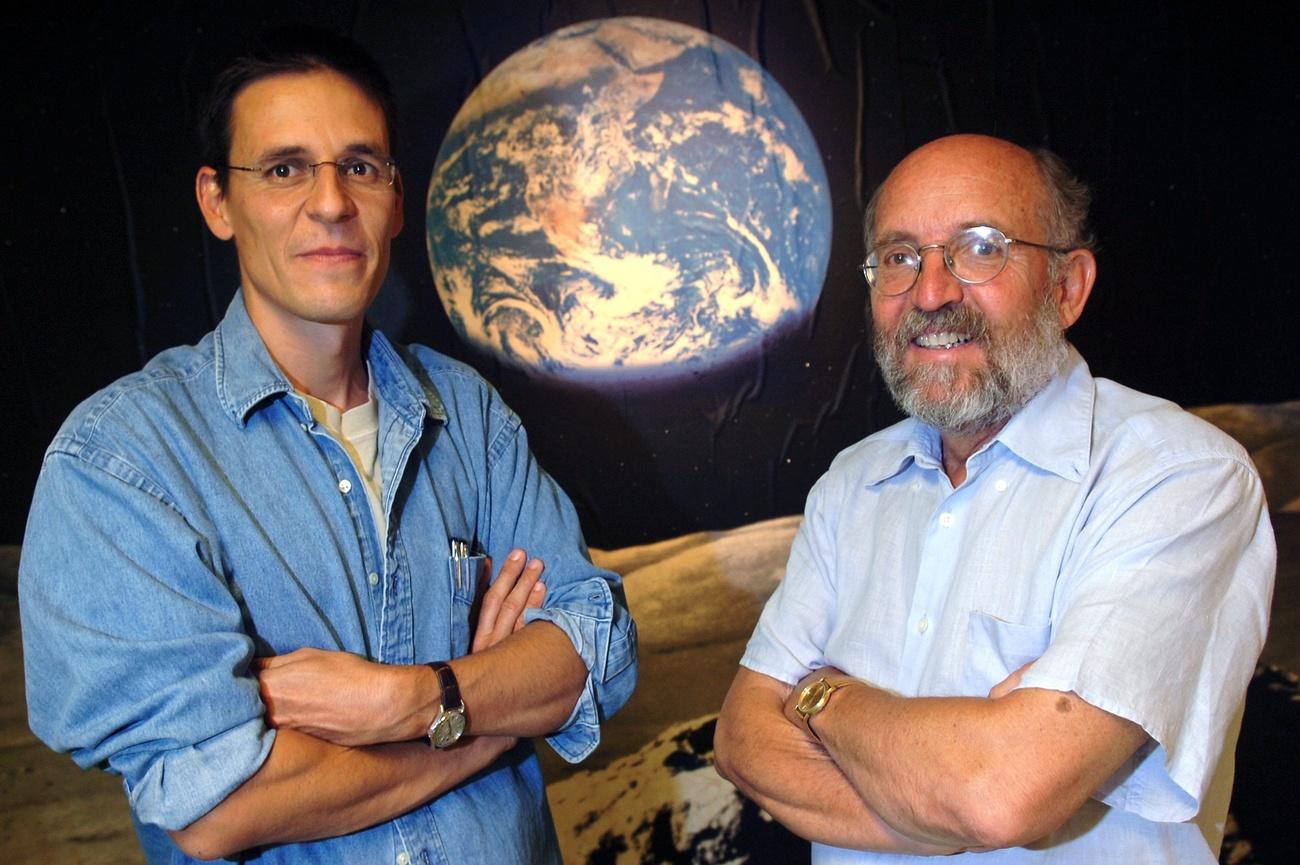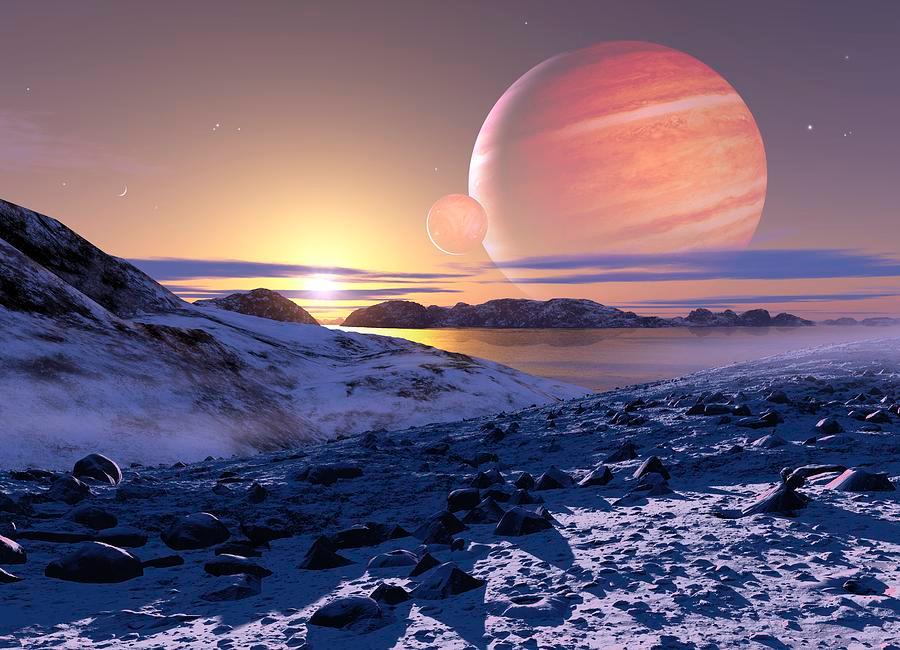
Swiss scientists win Nobel Prize in Physics

Swiss scientists Michel Mayor and Didier Queloz have been jointly awarded the Nobel PrizeExternal link in Physics together with Canadian-American cosmologist James Peebles for their work in furthering our understanding of the universe.
In a ceremony in Stockholm External linkon Tuesday, Mayor and Queloz from the University of Geneva were awarded the 2019 prize for “the discovery of an exoplanet orbiting a solar-type star.”
Peebles, of Princeton University in the United States, was awarded the joint prize for “theoretical discoveries in physical cosmology.”
“While James Peebles’ theoretical discoveries contributed to our understanding of how the universe evolved after the Big Bang, Michel Mayor and Didier Queloz explored our cosmic neighbourhoods on the hunt for unknown planets,” the Nobel committee announced.
“Their discoveries have forever changed our conceptions of the world.”
“Simply extraordinary”
It was October 6, 1995 when Queloz and Mayor first announced the discovery of a planet orbiting a star other than our own, revolving around a star 42 light years away from Earth.
The discovery would unleash a rich period of astronomic exploration, with over 1,000 further exoplanets being discovered over the next decades.
“This discovery is the most exciting of our entire career, and to be awarded a Nobel Prize is simply extraordinary,” Mayor and Queloz said in a statement on Tuesday.

More
Is there life elsewhere?
The Swiss scientists continued to investigate, and 12 years after their initial success they discovered Gliese 581 c, a potentially Earth-like planet orbiting the red dwarf star, Gliese 581.
In the popular imagination, the Holy Grail is to find life on a planet other than our own. In an interview with swissinfo.ch a decade ago, when asked about this possibility, Mayor said: “as a scientist I feel unable to answer that question.”
Peebles was awarded half the 9-million-Swedish-crown ($910,000) Nobel prize while Mayor and Queloz shared the other half.

More
Thousands of planets – but is there life out there?

In compliance with the JTI standards
More: SWI swissinfo.ch certified by the Journalism Trust Initiative






























You can find an overview of ongoing debates with our journalists here . Please join us!
If you want to start a conversation about a topic raised in this article or want to report factual errors, email us at english@swissinfo.ch.